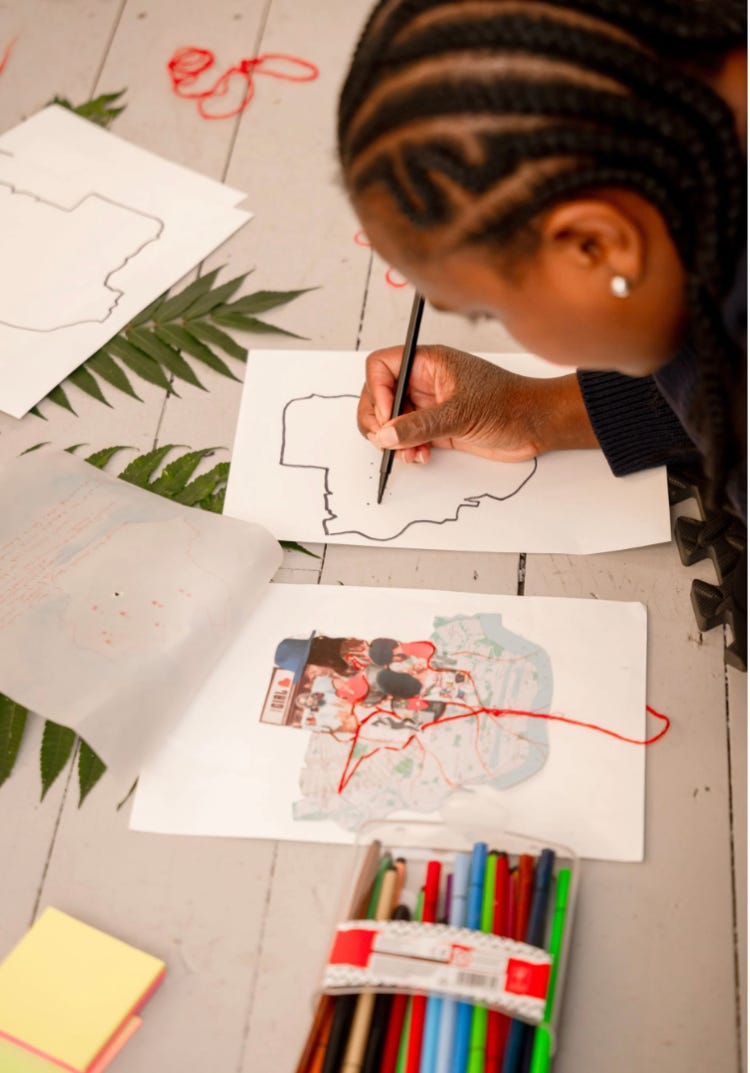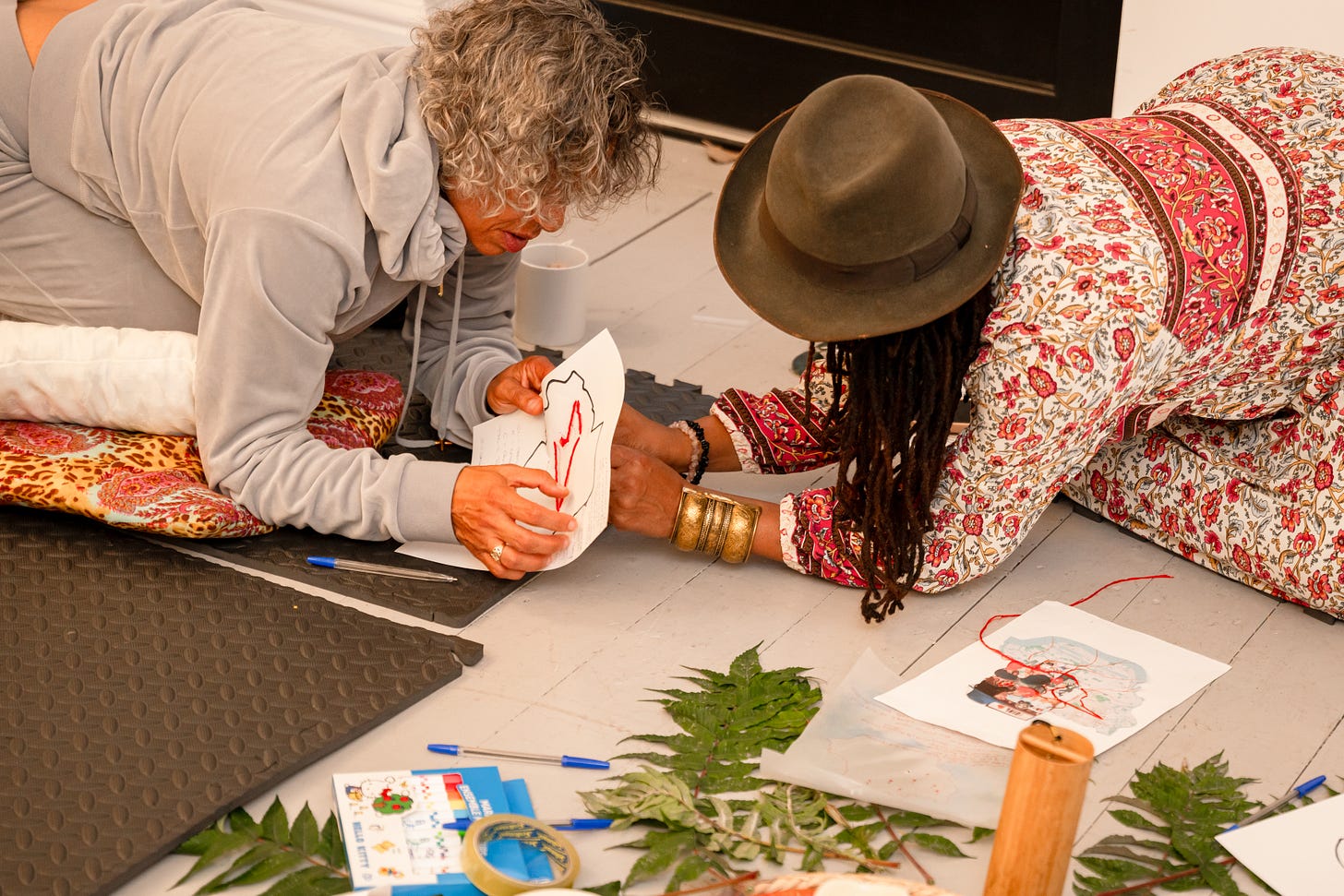Developing non-extractive approaches to collecting oral histories when engaging with marginalised communities.
Creating Trauma informed spaces to hold sensitive stories.
Photograph of my Workshop Connected Threads. Part of my Speculative Artist Residency workshop with Alice Billings house
Photography www.monikaszollephotography.com
There is a growing trend in collecting oral histories, particularly from communities whose narrators have faced adversity, such as racism, systemic oppression, and economic instability. As a Black woman artist who has spent over a decade creating spaces for women from communities in India, Africa, the UK, Morocco, and others, I have gathered numerous rich stories that I incorporate into my painting practice and audio work. The beauty of having a socially engaged practice lies in the collection of many stories, data, and oral histories that often go uncaptured.
While sharing our stories can be beautiful and heartwarming, these conversations frequently come with tears and a release of trauma that can be somatic—a revelation or confession, perhaps. This leads me back to the topic of oral history collecting. During my oral history training, I was advised not to delve too deeply into emotions. However, as a trauma-informed coach, I have learned that regardless of how sensitive we aim to be, trauma or triggers can arise regardless of how deep we pursue the discussion.
Photo credit @monikaszolle.branding
I urge consideration when working with Black and Brown individuals due to the racial trauma we have experienced and the lack of trust we often feel when "others" come to extract information from us. We often share our stories through a “fawn” response, where we are eager to communicate but may leave the conversation emotionally unaddressed.
I believe oral history sessions should be more than just a means of collecting stories or images; they should represent a true exchange where participants feel:
- Nourished
- Inspired
- Heard and seen
- Connected and empowered
- Equipped with an action plan for personal use
- Offered a gateway to improve their mental or emotional health (considering that Black women score low on various health and social metrics)
Organizations often have limited time and resources to conduct interviews; however, it is crucial to collect stories through a decolonized, person-centered approach.
Here are some suggestions for creating safer spaces for oral histories:
- Trauma-informed somatic workshops
- Women’s circles with art
- Storytelling and voice-work workshops
- Nature-building activities like herbal walks
- Drama or drama therapy workshops
- Craft circles such as knitting and weaving
These suggestions aim to complement existing creative practices for collecting stories and should be considered when working with community members who need support to improve their lives. Reciprocating oral history sessions with skill exchanges or therapeutic, empathic spaces would enable community members to access therapeutic and creative modalities that might not be available to them in their everyday lives.
I recently completed a two-week residency at Alice Billings house supported by artist/curator Sanj ( @sanjs_archive), that enabled me to have the space to ground myself into this work and solidify my asocially informed art practice into one that incorporates this holistic non-explotive method of documenting oral stories.





